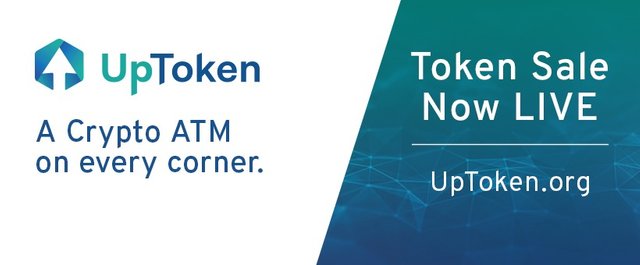Do Your Own Due Diligence
Do Your Own Due Diligence
In the earlier days of the Internet, there was an acronymic shorthand everyone in a community would quickly learn. Today this is less true. There is more shorthand, but it is less universally understood. My second favorite was DYODD, meaning: Do Your Own Due Diligence. It is as relevant today as it ever was.
In 1995 I was a naïve university student. I’d been recruited to work on a startup project, and I decided I needed a laptop so I could demo the prototype at meetings with the founder and (I had hoped) investors. It could have been Zillow in 1995. It never got funded. A story for another time.
On alt.comp.hardware.forsale (the USENET was a decentralized distributed community forum popular before the Web), people would offer computer equipment for sale. Most people were trustworthy, and many items were bought and sold there. (This was before things like eBay and PayPal existed). I found a Toshiba laptop for sale at a very good price, and so I arranged to make payment. I cashed out all the savings bonds my grandmother had given me over the years at the bank, and wired the money to, let’s call him David.
Everyone today will guess the punchline of that story. Yes, I was naïve. But the Internet was a different place then. And it wasn’t.
I got rather upset with the receiving bank. They gave cash to a person whose identification didn’t match the name I sent it to. “But they knew all the details of the transfer” they told me. Um… yeah, so would a computer hacker I said. “Hacker?” they said, confused. The movie wouldn’t open until later that Fall. I wouldn’t discover the movie until two decades later. How did I ever miss Jonny Lee Miller feat. Angelina Jolie?!
I called the FBI. No, really. They gave me a phone number. US Secret Service. I was like, WTF? Yes, apparently bank wire fraud in the United States is the domain of the Secret Service, not the FBI. I called. I spoke to someone. They listened. I couldn’t tell if they were interested. It was an odd, one-sided conversation. I asked for an email to send information. “No, we don’t do email” I was told. I got a fax number.
Over the next two months I gathered together a small community of three dozen other people spread across the globe who had been defrauded by the same husband & wife team. I faxed the Secret Service hundreds of pages of emails and affidavits. I never heard a word from them. Then, David was arrested in Florida on an unrelated charge. I was getting very good at Internet sleuthing. I faxed them this. I didn’t hear back. Three years later, I would receive a restitution check in the mail, for $5000. They got the fax.
Being none the wiser, I wired that $5000 to an account in Amsterdam to fund a cryptographic distributed cyberspace jurisdiction. It was a donation to a foundation in Costa Rica. Later I would find out many of those donations were sold as “investment opportunities”. I even had a cryptocurrency precursor they called warrants, in exchange for that donation.
I would quit Microsoft to go work for a startup I knew was getting acquired by a Venture Capital incubator. I have a vision of creating a startup foundry, and that looked like the perfect ticket to the Game. It was an enlightening experience into the world of Venture Capital, dot-com era. The summer was brilliant, working by day in a waterfront Lake Union office, sailing around the lake every night. The end of summer came early. A capital call was made. The Limited Partners said no. It was the Fall of 2000.
He set a gun on the table. “You work for the US Secret Service?” he asked.
Costa Rica was balmy. Two hours I had waited for this guy to pick me up. We had never met, except for email. I had my entire net worth in my pocket. $20. Not even enough for a hotel. My entire net worth. Except for those warrants.
I had traded those into a small fortune. That cyberspace jurisdiction I had donated money to two years earlier had created an online community and warrant trading exchange. I just bet on volatility, both buying and selling. It was a good bet (one I would recommend if you trade cryptocurrency). Rather than wait out the dot-com winter in Seattle, warm Costa Rica sounded so much more inviting.
My ride finally came. He was late. Thank goodness. I had a one-way ticket and no back up plan. The next morning I was sitting in front of a grizzled Leo Trotsky looking writer whose anarcho-capitalist writings were quite the opposite. We were having breakfast. Gallo Pinto with a fried egg on top. He set a gun on the table. “You work for the US Secret Service?” he asked.
I’ll never know how they found out enough information to ask, but not enough to know that I didn’t. I told him the same story I told you above. To my relief, he put the gun away. “You know what? I believe you. We’re just doing Due Diligence on everyone who comes here.”
This is not the way I suggest you do Due Diligence.
That project would soon fail, my small fortune as ephemeral as my dot-com equity was. A story for another time. Unlike the first, this was not a con job, just a poorly executed crypto project that did a “token sale” twenty years before its time. Which brings me to my point:
DO YOUR OWN FUCKING DUE DILIGENCE
Don’t rely upon mine. Don’t rely upon anyone else’s.
I made a donation of the $5000 that was heartbreaking when I lost it and irrelevant when I got it back. It turned into something I thought was going to be amazing, and then it disappeared.
When an Angel investor writes a check, they consider that money lost the moment it leaves their bank account. Angel investors don’t write checks with concerns about downside risk, they write checks on the slight chance of “what if things go right?” They take big risks.
Syndicates are all the rage in venture investing. Incredibly talented all-star Angel Investors like Jason Calacanis and Gil Penchina invest in startups, and you can put your money in alongside them (if you are accredited). Just because a syndicate lead writes a check doesn’t mean they have the same risk tolerance as you do, or did due diligence. In a ThisWeekInStartups podcast, Jason Calacanis described his investment strategy as Luke Skywalker entering the trench of the Death Star trying for a 1 in a million shot at the ventilation shaft! If you don’t want your money to die in a flame a glory, you should not invest.

That’s what I do for a living: really, really risky investments. That’s why I call our syndicate the “trench run syndicate,” after Luke Skywalker’s — spoiler alert — risky attack on the Death Star. — Jason Calacanis
Jason and Gil can afford to write checks on “what if things go right?” and lose. You must be able to do so too, if you are to play in this Game of Startups. Don’t blame them when you lose. DYODD, and expect to lose anyway.
Initial Coin Offerings, ICOs, what the lawyers would prefer you called Token Sales, are now even more the rage, because unlike syndicates, they are often open to non-accredited investors, and they promise the holy grail of venture investing: early liquidity. Instead of waiting six years on average for an exit, you need only wait until the token is traded on an exchange.
This is going to disrupt venture capital in a way no one is prepared for.
More people will lose money than in the 1929 crash of Wall Street. That’s not speculation, it’s just mathematics. 9 out of 10 startups fail. Cryptocurrencies don’t change the hard realities of making a product people want. Most ICO investors are not prepared for that reality. They are newbies to the Game of Startups.
Did you wonder what my favorite shorthand is? TANSTAAFL. It stands for, There Ain’t No Such Thing As A Free Lunch. A lot of people are getting into crypto in search of the free lunch. I see many projects sprinkling crypto on top the way they were sprinkling AI on top last year. These are ideas that Jason and Gil wouldn’t give the time of day, but now they are going after money from unsophisticated public investors. Many are scams, like my Toshiba laptop that never arrived. Many more are projects that are doomed to fail, like the Costa Rica crypto project that was twenty years too soon.
Building products is hard. Investing in startups is hard. DYODD, and expect failure as function of the market you are about to enter. Welcome to the Game of Startups.
If you’ve made it this far, I thank you. I don’t often write like this, so please share!

I am advising Coinme, on their UpToken sale, a cryptocurrency utility token that powers their Crypto ATM network loyalty program. The Token Sale runs October 16–26th, 2017. I’ve written about this here and here. If you decide to purchase any tokens, I expect you to DYODD. Thank you.
Originally posted on Medium.